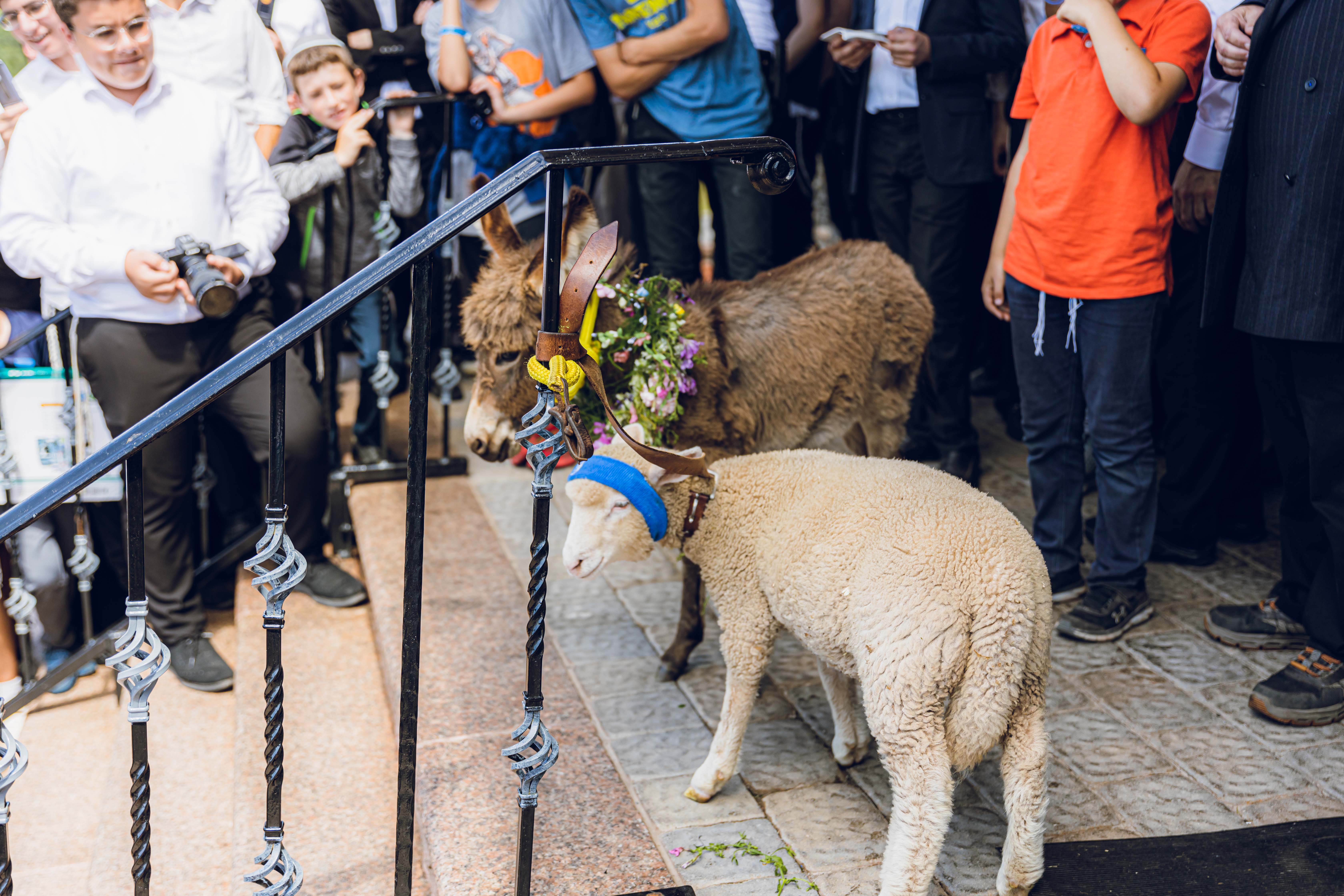Lessons of Emunah, Tzedakah, and Shabbat
There are stories we choose to tell—and then there are stories we are chosen to carry. This is one of the latter. From the moment my daughter Roizy entered this world, I understood that her life would not follow a conventional script. Nor would ours. What I could not have known then was how deeply her presence would shape our home, hearts, and faith.
This story is not a memoir of medical details or a technical journal of procedures and diagnoses. It is the unfolding of a sacred path. It is the quiet unspooling of a life that, while brief in years, was infinite in impact. It is a testimony to a soul that illuminated our lives even when our world darkened. At its core, it is a story of Emunah (faith) – discovering Hashem (God) not in the absence of suffering but in the very heart of it. It’s a record not of what broke us but of what built us.
Roizy’s journey has been a profound reminder of the deep roots of our Jewish faith—roots that extend into the daily observances of kashrut, the obligation of tzedakah, and the sacredness of Shabbat. In her brief but luminous life, she has taught us how these values bring us closer to Hashem, especially when life feels uncertain.
Roizy’s Arrival:
Roizy’s story began on Erev Yom Tov (day before a holiday), in the clinical brightness of a hospital delivery room. My wife and I had made the trip to the hospital in a flurry of anticipation. After six boys, this would be our first daughter—a long-prayed-for blessing. Our home had been brimming with excitement for weeks. Tiny clothes folded neatly into drawers. A delicate pink bassinet set up beside our bed. We had waited for this child with full hearts, imagining her laughter filling our home and the soft thump of her feet running down our hallway.
She was born with full cheeks and a beautiful head of hair, weighing in at a healthy eight pounds. I remember the relief in that moment, which quickly turned into unease. She didn’t cry. I remember how quiet the room became, how the medical team exchanged quick glances, communicating silently with their eyes and nods.
And then I heard it. Just one sentence. Four words that shattered the stillness: “She’s turning blue.”
A Test Of Faith
I stood there, frozen in time. My wife was still on the operating table. I couldn’t protect her from what I was witnessing. I couldn’t protect our daughter from what was unfolding. All I could do was listen as the quiet hum of panic took over the room, nurses scrambling, doctors leaning in. That day, everything changed.
By the first night of Sukkot, we had our diagnosis. Spina bifida. An open lesion on her lower spine. Spinal fluid leaking out. A surgery would be required within the next twenty-four hours. The neurosurgeon explained the implications with clinical calm. There might be paralysis. She might need a wheelchair. They couldn’t tell us how much brain function would be affected. There was a long list of “maybes” and “we’ll have to wait and see.” There was also a quiet, unmistakable truth settling in: life as we knew it had shifted permanently.
But in that moment—overwhelmed, afraid, and physically and emotionally spent—I knew one thing clearly: this child had not come into our lives by accident. She had been sent. And we had been chosen.
A Community’s Response
What followed was nothing short of miraculous. The Jewish community, a network of friends, family, and even strangers, rallied around us. There was an outpouring of tzedakah (charity)—both in the form of financial donations for medical expenses and in the countless acts of kindness that poured in. Meals, babysitting, prayer, and support—tzedakah was not just something we gave but something that surrounded us, comforting and strengthening our family in the darkest hours. This kindness from others, inspired by the Jewish value of charity, became a lifeline during a time when our strength was tested beyond measure.
A Time To Rest
Shabbat became a sacred time for us, a day when we could pause from the turmoil of hospitals and treatments and simply be. The rituals of lighting candles, saying Kiddush (blessing) over wine, and sitting down together as a family were acts that rooted us in our faith. On Shabbat, Roizy’s smile—her quiet presence—reminded us that life could still be holy, even in the midst of uncertainty. The very act of resting, of refraining from work, felt like an offering to Hashem—a way to sanctify our days despite the challenges.
It was on Shabbat that we learned to deeply appreciate the value of time. Time with each other. Time for reflection. Time to connect with Hashem in prayer, in song, and in study. Each Shabbat became an opportunity to draw closer to God, to appreciate the blessings we had, and to renew our strength for the week ahead.
Kashrut: Elevating The Mundane
In our home, kashrut—the Jewish dietary laws—also became a focal point of sanctification. The act of preparing meals for Roizy, who had very specific medical needs, became a way to keep us grounded in the rhythms of Jewish law and tradition. Every meal was an opportunity to infuse holiness into the mundane. Even when our world seemed uncertain, the act of following the laws of kashrut reminded us that we could still connect to God through our most basic actions.
Roizy’s illness brought us closer to understanding how every mitzvah, even the smallest act, can transform our reality. Each time we observed the laws of kashrut—from separating meat and dairy to the careful preparation of food—we saw it as a way to elevate our mundane routines into acts of sacred service.
Roizy’s Lasting Legacy
Roizy’s life taught us the profound truth that Emunah—faith in Hashem—is not just about finding God in moments of peace, but also in the chaos, fear, and uncertainty. Through the challenges we faced, we learned that Hashem is always present, even when we cannot see Him. And it is through our faith, through our community, through tzedakah, through Shabbat, and through kashrut that we can navigate even the most difficult of journeys.
Roizy may have left this world too soon, but the legacy of her life will forever illuminate the path of Emunah, teaching us that every act of faith, kindness, and holiness brings us closer to the Divine.
Continue to ‘A Sacred Journey With Roizy 2’
Submitted by the Elias family


